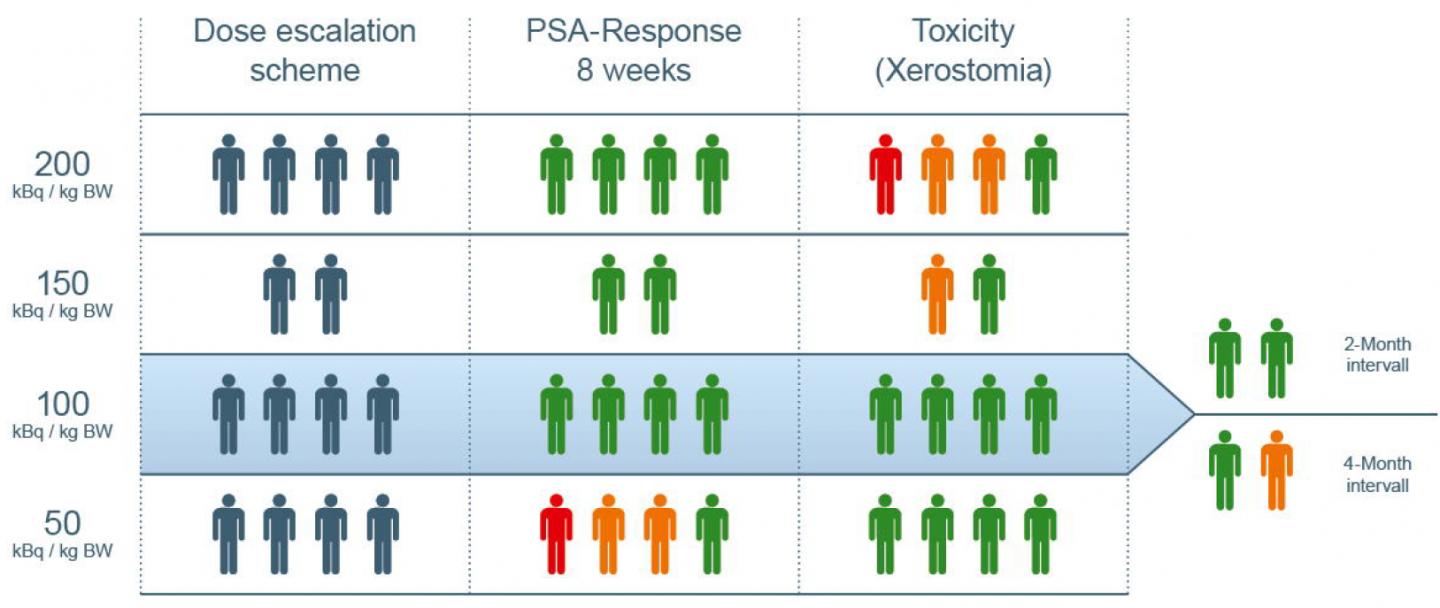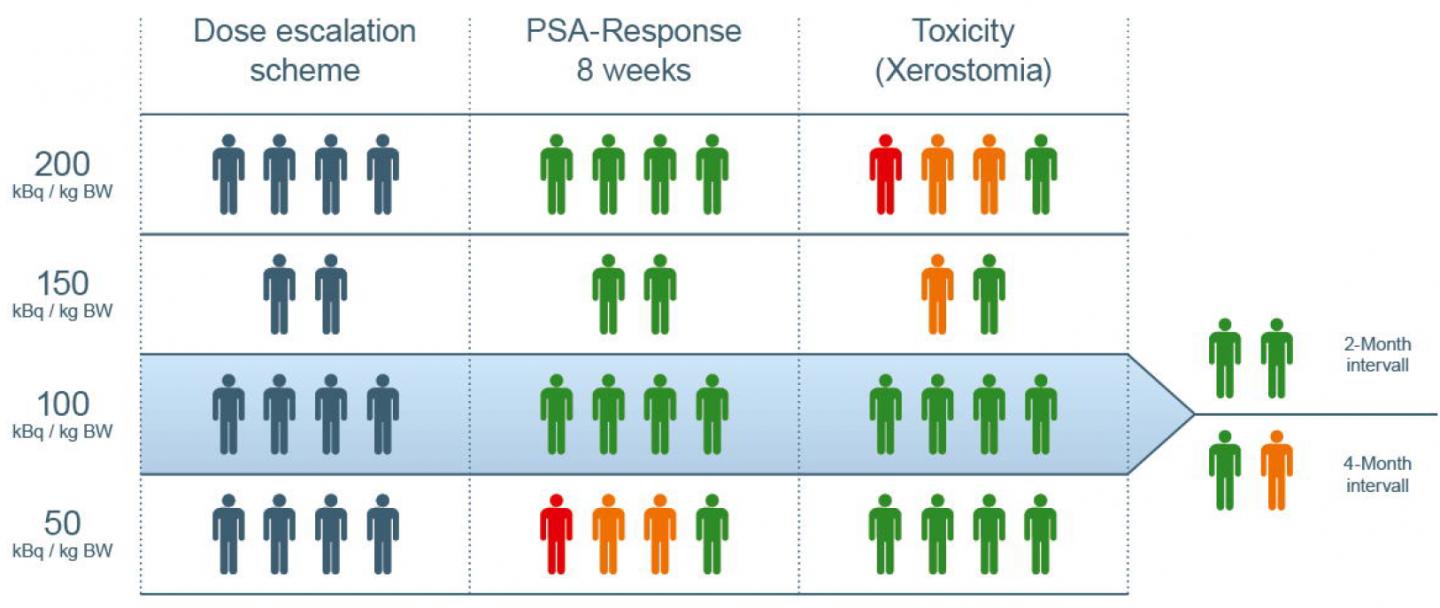
Credit: C Kratochwil et al., University Hospital Heidelberg, Heidelberg, Germany
RESTON, Va. – Therapy options are limited for men with advanced-stage, metastatic castration-resistant prostate cancer (mCRPC), but a new treatment protocol offers hope. In the featured article of The Journal of Nuclear Medicine's October issue, German researchers report on their recent clinical experience, which establishes a dosing regimen for actinium-225 (225Ac)-labeled targeted alpha therapy of patients with prostate specific membrane antigen (PSMA)-positive tumors. The protocol balances treatment response with toxicity concerns to provide the most effective therapy with the least side effects.
"The idea of targeted alpha therapy is not completely novel," explains Clemens Kratochwil, MD, University Hospital Heidelberg in Germany. "However, in contrast to hundreds of preclinical research reports, the clinical experience is still very limited. Our current results present a milestone with regard to clinical translation, because we could demonstrate how preclinical knowledge can be applied to human beings."
Salvage therapy results show treatment with 100kBq/kg 225Ac-PSMA-617 is tolerated by patients and demonstrates promising anti-tumor response. In addition, it was determined that repeated treatments in intervals of eight weeks may lead to continuing tumor control.
"We developed a treatment protocol that presents a promising trade-off between toxicity and anti-tumor activity of PSMA-directed targeted alpha therapy," says Kratochwil. "However, our current results present only a starting-dose that, on the one hand, has still to be optimized and, on the other hand, needs further studies to evaluate its efficacy. Ultimately, there could be a new treatment modality to improve symptomatic patients and/or prolong survival."
Looking ahead, Kratochwil states, "If PSMA-targeted alpha therapy keeps its promise, it may earn a significant place in therapeutic nuclear medicine. However, it is the nature of all molecular targeting therapies that they can only be effective if the target is sufficiently expressed in the tumors. Thus, molecular imaging by means of PSMA-PET/CT also has an important role as a stratification criterion, and the 'theranostic' concept [combining diagnostic imaging of a biomarker with precise therapy] may be an additional motivation to establish PSMA-PET/CT as a routinely available imaging modality."
###
Authors of "Targeted α-Therapy of mCRPC with 225Ac-PSMA-617: Dosimetry Estimate and Empirical Dose Finding" include Clemens Kratochwil, Hendrik Rathke, and Frederik L. Giesel, University Hospital Heidelberg, Heidelberg, Germany; Frank Bruchertseifer, Christos Apostolidis, and Alfred Morgenstern, Directorate for Nuclear Safety and Security, European Commission, Joint Research Centre, Karlsruhe, Germany; Marcus Bronzel, ABX-CRO, Dresden, Germany; Wilko Weichert, Institute of Pathology, University Hospital at Technical University Munich, Munich, Germany; and Uwe Haberkorn Uwe1,5, University Hospital Heidelberg and German Cancer Research Center (DKFZ), Heidelberg, Germany.
Please visit the SNMMI Media Center to view the PDF of the study, including images, and more information about molecular imaging and personalized medicine. To schedule an interview with the researchers, please contact Laurie Callahan at 703-652-6773 or [email protected] Current and past issues of The Journal of Nuclear Medicine can be found online at http://jnm.snmjournals.org.
About the Society of Nuclear Medicine and Molecular Imaging
The Society of Nuclear Medicine and Molecular Imaging (SNMMI) is an international scientific and medical organization dedicated to raising public awareness about nuclear medicine and molecular imaging, a vital element of today's medical practice that adds an additional dimension to diagnosis, changing the way common and devastating diseases are understood and treated and helping provide patients with the best health care possible.
SNMMI's more than 15,000 members set the standard for molecular imaging and nuclear medicine practice by creating guidelines, sharing information through journals and meetings and leading advocacy on key issues that affect molecular imaging and therapy research and practice. For more information, visit http://www.snmmi.org.
Media Contact
Laurie Callahan
[email protected]
@SNM_MI
http://www.snm.org
Original Source
http://www.snmmi.org/NewsPublications/NewsDetail.aspx?ItemNumber=25317 http://dx.doi.org/10.2967/jnumed.117.191395





